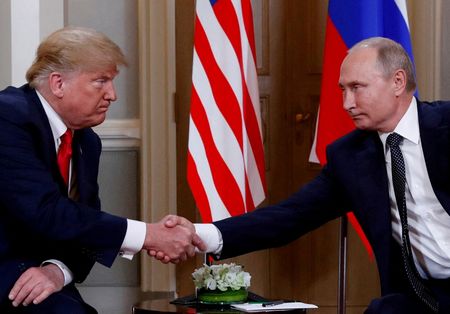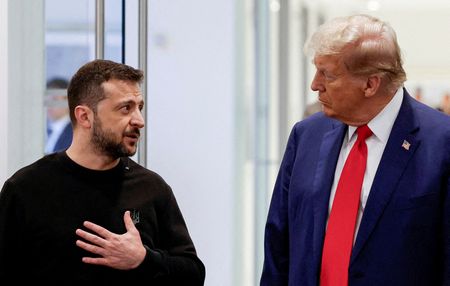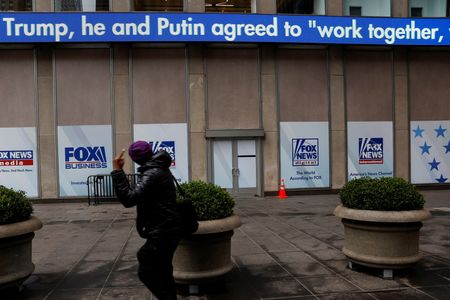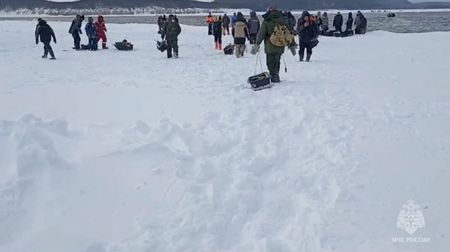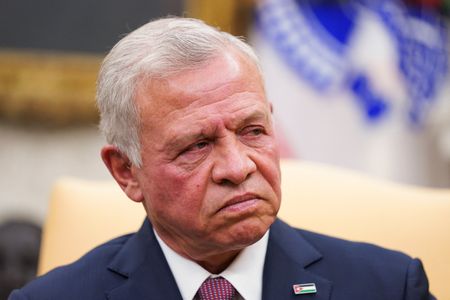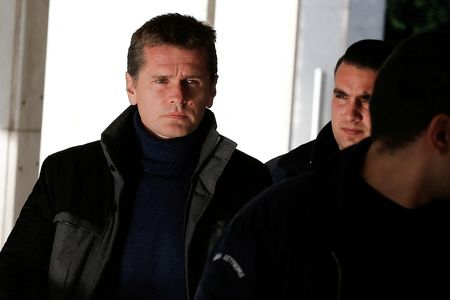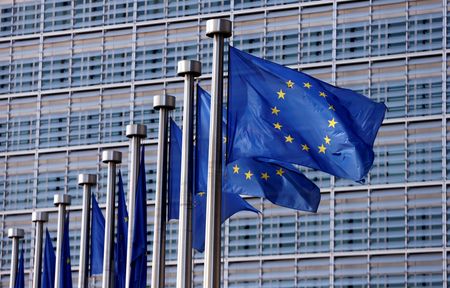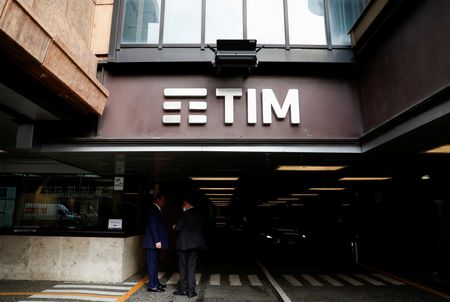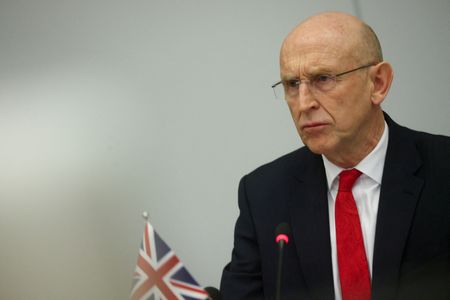WASHINGTON/MOSCOW/KYIV (Reuters) -Donald Trump discussed the war in Ukraine on Wednesday in phone calls with Russian President Vladimir Putin and Ukrainian President Volodymyr Zelenskiy, the new U.S. president’s first big step towards diplomacy over a war he has promised to end.
In a post on his social media platform after speaking to Putin, Trump said they “agreed to have our respective teams start negotiations immediately,” and that he would begin by phoning Zelenskiy.
After a call with the Ukrainian leader, Trump said: “The conversation went very well. He, like President Putin, wants to make PEACE.”
Zelenskiy’s office said Trump and Zelenskiy spoke by phone for about an hour, while the Kremlin said Putin’s call with Trump lasted nearly an hour and a half.
“I had a meaningful conversation with @POTUS. We… talked about opportunities to achieve peace, discussed our readiness to work together …and Ukraine’s technological capabilities… including drones and other advanced industries,” Zelenskiy wrote on X.
The Kremlin said Putin and Trump had agreed to meet, and Putin had invited Trump to visit Moscow.
There has been speculation that the two leaders could meet in a third country, with Saudi Arabia and the United Arab Emirates seen as possible venues, according to Russian sources.
Trump has long said he would quickly end the war in Ukraine, without spelling out exactly how he would accomplish this.
Earlier on Wednesday, Trump’s defense secretary, Pete Hegseth, delivered the new administration’s bluntest statement so far on its approach to the war, saying it was unrealistic for Kyiv to hope to recover all of Ukraine’s territory occupied by Russia since 2014, as was securing its membership in NATO.
“We want, like you, a sovereign and prosperous Ukraine. But we must start by recognising that returning to Ukraine’s pre-2014 borders is an unrealistic objective,” Hegseth told a meeting at NATO headquarters in Brussels. “Chasing this illusionary goal will only prolong the war and cause more suffering.”
Russia in 2014 annexed Crimea, which Ukraine and many Western countries consider to be occupied Ukrainian territory.
Hegseth said any durable peace must include “robust security guarantees to ensure that the war will not begin again”. But he said U.S. troops would not be deployed to Ukraine as part of such guarantees.
France, Germany and Spain said Ukraine’s fate must not be decided without Kyiv’s active participation, with French Foreign Minister Jean-Noel Barrot saying Europe would play its role in offering security guarantees for Ukraine even if NATO membership were not immediate.
ZELENSKIY OFFERS MINERALS
Zelenskiy, hoping to keep Trump interested in continuing to support his country, has lately proposed a deal under which the United States would invest in minerals in Ukraine.
Trump’s Treasury Secretary Scott Bessent, in Kyiv on Wednesday on the first visit by a member of Trump’s cabinet, said such a mineral deal could serve as a “security shield” for Ukraine after the war.
In a social media post, Trump said he and Zelenskiy discussed a meeting about the Ukraine war in Munich on Friday, which Vice President JD Vance and Secretary of State Marco Rubio would attend.
Along with Putin inviting Trump to Moscow, there were other signs that the two countries may be trying to improve strained relations, which could be a factor in Ukraine negotiations.
The Kremlin said the prisoner swap that got under way on Tuesday could help build trust between the two countries.
Russia on Tuesday freed American schoolteacher Marc Fogel, who was serving a 14-year sentence in a Russian prison, in exchange for a Russian cybercrime boss imprisoned in the U.S., according to a official.
No Ukraine peace talks have been held since the early months of the conflict, now approaching its third anniversary. Trump’s predecessor, Joe Biden, and most Western leaders had no direct contact with Putin after Russia launched its full-scale invasion of Ukraine in February 2022.
During the war’s first year, Ukraine succeeded in pushing Russian forces back from the outskirts of Kyiv and recapturing swathes of Russian-occupied territory.
But Moscow has mostly had the upper hand since a failed Ukrainian counteroffensive in 2023, making slow but steady gains in intense fighting that has killed or injured hundreds of thousands of troops on both sides and laid Ukrainian cities to waste.
Russia occupies around a fifth of Ukraine and has demanded Kyiv cede more territory and be rendered permanently neutral under any peace deal.
Ukraine demands Russia withdraw from captured territory and says it must receive NATO membership or equivalent security guarantees to prevent Moscow from attacking again.
Kyiv has recently appeared to have accepted that it will not be admitted to NATO soon but has emphasised its need for military support under a peace deal.
“If Ukraine is not in NATO … we need an army as numerous as the Russians have today,” Zelenskiy said in an interview with The Economist published on Wednesday.
“And for all this, we need weapons and money. And we will ask the U.S. for this,” Zelenskiy said, describing that as his “Plan B”.
(Reporting by Katharine Jackson, Doina Chiacu, Tom Balmforth, Yulia Dysa, Guy Falconbridge; Writing by Peter Graff and Simon Lewis; Editing by Jon Boyle, Mike Collett-White and Cynthia Osterman)

